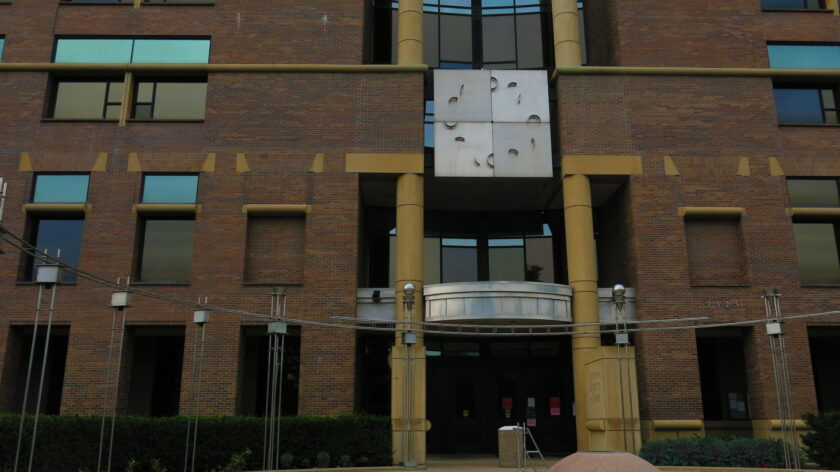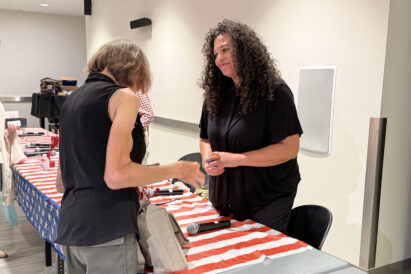Jurors hear forensic theories about man’s claim that friend killed homeless man

MARK SHENEFELT, Standard-Examiner
The 2nd District Court building in Ogden is pictured Friday, Sept. 18, 2020.OGDEN — A crime scene investigator testified Monday that the killer of Brian Racine stood over the homeless man and shot him through the head, an analysis that casts doubt on a description given by one of the co-defendants.
The first-degree murder trial of Cory Fitzwater in the Aug. 16, 2018, shooting near Ogden’s 21st Street Pond resumed with testimony by forensics experts, as well as a psychologist who had treated Fitzwater before the slaying.
Sandra Grogan, a supervisor with the Weber Metro CSI Team, testified that she and colleagues performed a trajectory analysis on the bullet that killed Racine, a 28-year-old man who was sleeping in a secluded homeless camp when he was killed.
Dalton Aiken, Fitzwater’s co-defendant, was convicted of murder in the case in 2019. He told police and later testified that he stood outside the wooded camp and saw Fitzwater shoot Racine, from about 15 feet on the other side of the camp.
Grogan said CSI personnel studied a bullet hole in the sleeping mat that was under Racine when he was killed. Their analysis determined the bullet passed through the mat at a 20-degree angle, meaning the shot came at close range from someone standing near the head of the mat.
“The bullet passed through the head, out of the neck, through the mat and into the ground,” Grogan said.
Fitzwater’s attorney, Randall Richards, asked Grogan if it “would be impossible” for the shot to have come from a 15-foot distance away, and she agreed.
Fitzwater told police in a December 2018 interview that he walked up to talk to Racine out of curiosity and was standing over the man when, he said, Aiken walked up on his right side and fired down at Racine.
A county attorney’s investigator, Steve Zaccardi, testified later Monday that forensic evidence made investigators question Fitzwater’s story. He said Aiken, at less that 6 feet tall, may have found it difficult to reach over the 6-foot-2 Fitzwater to shoot Racine.
He also said it “seems weird” to think Aiken would have stood right next to Fitzwater to fire. There was room around Racine’s sleeping area. “He could have shot from anywhere,” Zaccardi said. “You don’t have to stand together like you’re in a crowded elevator.”
On Monday afternoon, jurors heard from Rachelle Rose, a clinical psychologist who said she diagnosed Fitzwater with combat-related post-traumatic stress disorder in 2014. She was working on contract for the Veterans Administration to evaluate Fitzwater as he was applying for disability benefits. She said Fitzwater had suffered a mild traumatic brain injury when his convoy was attacked with an improvised explosive device in Afghanistan.
She testified that she later provided counseling for Fitzwater until 2017. Under cross-examination by Weber County Attorney’s Office prosecutor James Swink, Rose testified she counseled Fitzwater for PTSD-related issues, such as anger. She said he told her he held anger for “fat people and stupid people.” She said he acknowledged a problem with binge drinking and that he “struggles with impulsivity.”
She also confirmed for Swink that twice during her counseling of Fitzwater, the veteran told her, “You just never know which Cory you’re going to get.”
Fitzwater told police that he suffered a PTSD episode when he heard the shot he alleged was fired by Aiken.



